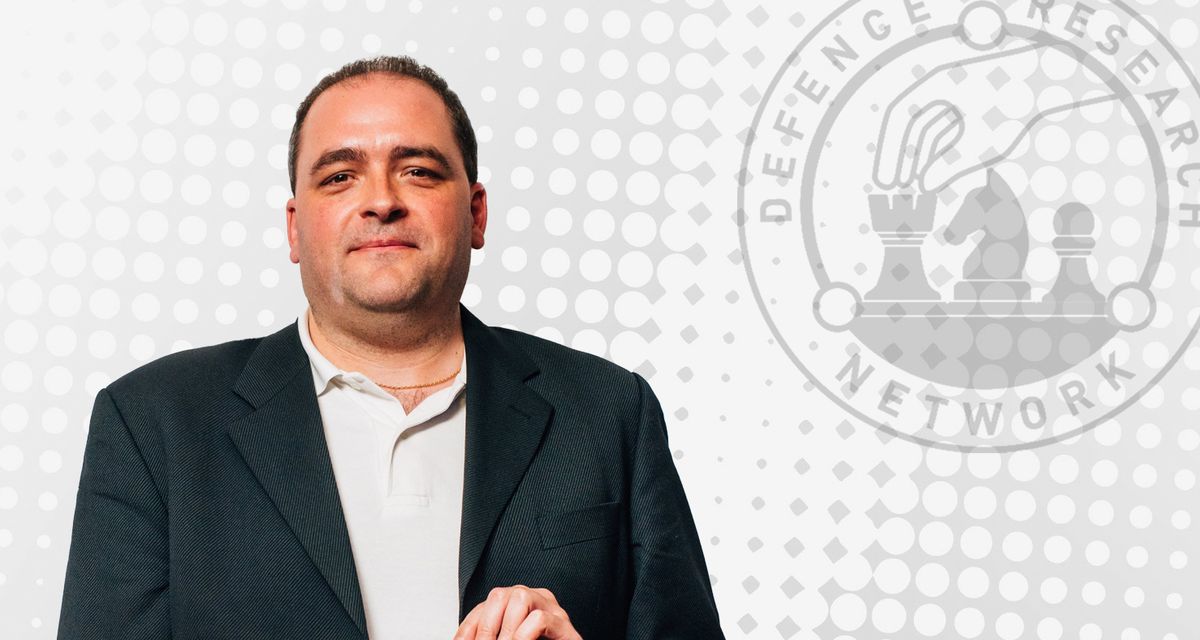In Conversation: Dr James Worrall
Dr James Worrall is an Associate Professor in International Relations and Middle East Studies at the University of Leeds, with a wide range of research topics.

What advice would you like to give PhD students and early career researchers that you wish someone had said to you?
I was very lucky with my PhD supervisor and the people who I sought mentorship from but there's certainly still things I wish I'd known then. One would be to seek more mentors from the people just ahead of you, their experience is fresher and often invaluable. The second would certainly to be to focus on publications earlier and that co-authoring is incredibly beneficial and will become more acceptable and normal as time unfolds in our field. The third is to not underestimate how long some things take and that even when accepted there are all kinds of hidden elements that take up huge amounts of time. Additionally, things that I knew then but which have become even more important over time: network harder, get out there early and often and start conversations with anyone and everyone - you never know where it might lead. Take more time in the field - you have opportunities in terms of time if not resources at that stage, the latter can often be surmounted but you'll almost never have that kind of time again so spend longer in the field than you think you need, indeed travel as much as possible - especially to places you might work on later and go back as often as you can to build and consolidate networks and deepen your understanding. Finally, academia can be a competitive sport but having a team around you and being selfless when helping others even if it doesn't always lead to people returning the favour, at minimum, means you've got guaranteed support and are at least making an effort to make it a supportive field to work in more broadly.
What is the most effective teaching method you have delivered or seen delivered?
I've always been pretty passionate about teaching and have been lucky enough to have even won awards voted for by students themselves! I'm currently co-directing our Centre for Teaching Innovation and Scholarship so I get to see some great innovations and have tried out a lot of things in my time in the classroom but at the end of the day the key is to let the material shine. Sometimes overly fancy pedagogy is not that effective and the old works better than the new, so while you absolutely should be trying new things and trying to make the classroom more fun and effective, often the best way is to focus on taking students on a journey and opening their eyes to new ways of thinking about and assessing material. Human beings are motivated by narrative and stories and while I focus a lot on building analytical tools and linking ideas there's no substitute for taking people on a journey. I want people to leave my classroom feeling that their mind has really been stretched yet at the same time they have new tools for coping with complexity and that they've had fun in the process. In that sense making material come alive, weaving in personal anecdotes and experiences from fieldwork, drawing connections both within and between disciplines, pointing out ironies and showing how theoretical and analytical tools can bring clarity and new perspectives is really the bedrock of how I teach - basically by telling a series of stories. As well as this, for me in particular, it's the conversations in office hours that are the most stimulating and is often where I feel I make the biggest impact. We often think about teaching as being the thing we do in the classroom but what we do one-to-one in our offices is just as important and can be truly transformatory - so don't just reflect on your in-class pedagogy also think deeply about your tool box for one-to-one supervision, discussions and mentoring.
What is your favourite museum and why?
That's a hard question, I can't just pick one! I've long been fascinated by museums, as a kid going to the ones on the D-Day landing beaches in Normandy, which vary dramatically from a farmers barn in a field to giant purpose built museums like the one in Caen and the myriad array of those in between, was very formative. Nowadays, I increasingly study how museums are used in shaping national stories, legitimacies and systems of rule - especially in the Gulf. For about fifteen years now I've been visiting, photographing and thinking about the various museums in Oman especially. The new National Museum in old Muscat is fascinating on so many levels and each time I go I come away with more ideas, so that is absolutely one of my favourites. If I could only choose one though it would have to be the British Museum, the feeling of having the world in one place and the buzz of people from all over the world experiencing it with you is hard to beat, the political controversies of course make it even more interesting. It's a place that makes you think about humanity in an interconnected way, I've had some very special times there and there's always more to see.




